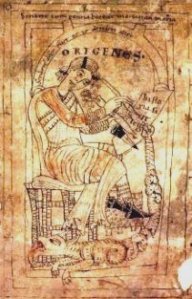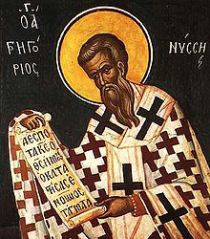“…by the faith of the gospel Christ becomes ours, and we are made partakers of the salvation and eternal blessedness procured by him. But as our ignorance and sloth (I may add, the vanity of our mind) stand in need of external helps, by which faith may be begotten in us, and may increase and make progress until its consummation, God, in accommodation to our infirmity, has added such helps, and secured the effectual preaching of the gospel, by depositing this treasure with the Church. He has appointed pastors and teachers, by whose lips he might edify his people (Eph. 4:11); he has invested them with authority, and, in short, omitted nothing that might conduce to holy consent in the faith, and to right order. In particular, he has instituted sacraments, which we feel by experience to be most useful helps in fostering and confirming our faith…
I will begin with the Church, into whose bosom God is pleased to collect his children, not only that by her aid and ministry they may be nourished so long as they are babes and children, but may also be guided by her maternal care until they grow up to manhood, and, finally, attain to the perfection of faith. What God has thus joined, let not man put asunder (Mark 10:9): to those to whom he is a Father, the Church must also be a mother…
…let us learn, from her [the visible church’s] single title of Mother, how useful, nay, how necessary the knowledge of her is, since there is no other means of entering into life unless she conceive us in the womb and give us birth, unless she nourish us at her breasts, and, in short, keep us under her charge and government, until, divested of mortal flesh, we become like the angels (Mt. 22:30). For our weakness does not permit us to leave the school until we have spent our whole lives as scholars…
But let us proceed to a full exposition of this view. Paul says that our Saviour ‘ascended far above all heavens, that he might fill all things. And he gave some, apostles; and some, prophets; and some, evangelists; and some, pastors and teachers; for the perfecting of the saints, for the work of the ministry, for the edifying of the body of Christ: till we all come in the unity of the faith, and of the knowledge of the Son of God, unto a perfect man, unto the measure of the stature of the fulness of Christ’ (Eph. 4:10-13). We see that God, who might perfect his people in a moment, chooses not to bring them to manhood in any other way than by the education of the Church. We see the mode of doing it expressed; the preaching of celestial doctrine is committed to pastors. We see that all without exception are brought into the same order, that they may with meek and docile spirit allow themselves to be governed by teachers appointed for this purpose. Isaiah had long before given this as the characteristic of the kingdom of Christ, ‘My Spirit that is upon thee, and my words which I have put in thy mouth, shall not depart out of thy mouth, nor out of the mouth of thy seed, nor out of the mouth of thy seed’s seed, saith the Lord, from henceforth and for ever’ (Isa. 59:21). Hence it follows, that all who reject the spiritual food of the soul divinely offered to them by the hands of the Church, deserve to perish of hunger and famine. God inspires us with faith, but it is by the instrumentality of his gospel, as Paul reminds us, ‘Faith cometh by hearing’ (Rom. 10:17). God reserves to himself the power of maintaining it, but it is by the preaching of the gospel, as Paul also declares, that he brings it forth and unfolds it. With this view, it pleased him in ancient times that sacred meetings should be held in the sanctuary, that consent in faith might be nourished by doctrine proceeding from the lips of the priest. Those magnificent titles, as when the temple is called God’s rest, his sanctuary, his habitation, and when he is said to dwell between the cherubims (Ps 32:13, 14; 80:1), are used for no other purpose than to procure respect, love, reverence, and dignity to the ministry of heavenly doctrine, to which otherwise the appearance of an insignificant human being might be in no slight degree derogatory. Therefore, to teach us that the treasure offered to us in earthen vessels is of inestimable value (2 Cor. 4:7), God himself appears and, as the author of this ordinance, requires his presence to be recognised in his own institution. Accordingly, after forbidding his people to give heed to familiar spirits, wizards, and other superstitions (Lev. 19:30, 31), he adds, that he will give what ought to be sufficient for all—namely, that he will never leave them without prophets. For, as he did not commit his ancient people to angels, but raised up teachers on the earth to perform a truly angelical office, so he is pleased to instruct us in the present day by human means. But as anciently he did not confine himself to the law merely, but added priests as interpreters, from whose lips the people might inquire after his true meaning, so in the present day he would not only have us to be attentive to reading, but has appointed masters to give us their assistance. In this there is a twofold advantage. For, on the one hand, he by an admirable test proves our obedience when we listen to his ministers just as we would to himself; while, on the other hand, he consults our weakness in being pleased to address us after the manner of men by means of interpreters, that he may thus allure us to himself, instead of driving us away by his thunder. How well this familiar mode of teaching is suited to us all the godly are aware, from the dread with which the divine majesty justly inspires them.
Those who think that the authority of the doctrine is impaired by the insignificance of the men who are called to teach, betray their ingratitude; for among the many noble endowments with which God has adorned the human race, one of the most remarkable is, that he deigns to consecrate the mouths and tongues of men to his service, making his own voice to be heard in them. Wherefore, let us not on our part decline obediently to embrace the doctrine of salvation, delivered by his command and mouth; because, although the power of God is not confined to external means, he has, however, confined us to his ordinary method of teaching, which method, when fanatics refuse to observe, they entangle themselves in many fatal snares. Pride, or fastidiousness, or emulation, induces many to persuade themselves that they can profit sufficiently by reading and meditating in private, and thus to despise public meetings, and deem preaching superfluous. But since as much as in them lies they loose or burst the sacred bond of unity, none of them escapes the just punishment of this impious divorce, but become fascinated with pestiferous errors, and the foulest delusions. Wherefore, in order that the pure simplicity of the faith may flourish among us, let us not decline to use this exercise of piety, which God by his institution of it has shown to be necessary, and which he so highly recommends. None, even among the most petulant of men, would venture to say, that we are to shut our ears against God, but in all ages prophets and pious teachers have had a difficult contest to maintain with the ungodly, whose perverseness cannot submit to the yoke of being taught by the lips and ministry of men. This is just the same as if they were to destroy the impress of God as exhibited to us in doctrine. For no other reason were believers anciently enjoined to seek the face of God in the sanctuary (Ps. 105:4) (an injunction so often repeated in the Law), than because the doctrine of the Law, and the exhortations of the prophets, were to them a living image of God. Thus Paul declares, that in his preaching the glory of God shone in the face of Jesus Christ (2 Cor. 4:6). The more detestable are the apostates who delight in producing schisms in churches, just as if they wished to drive the sheep from the fold, and throw them into the jaws of wolves. Let us hold, agreeably to the passage we quoted from Paul, that the Church can only be edified by external preaching, and that there is no other bond by which the saints can be kept together than by uniting with one consent to observe the order which God has appointed in his Church for learning and making progress.”










